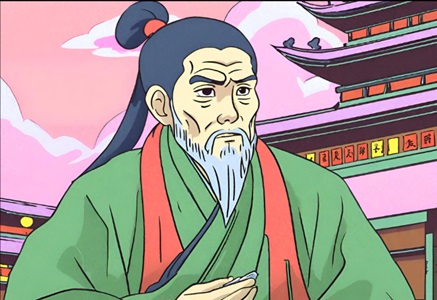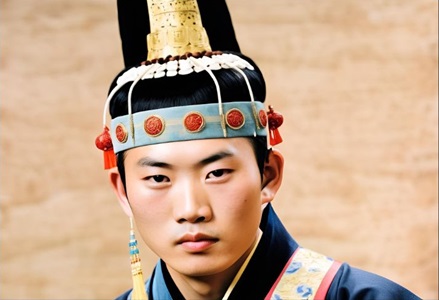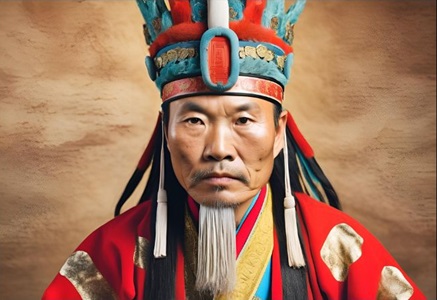Title of Biography in Chinese, Pinyin: 荀子传 (Xún Zǐ Zhuàn).
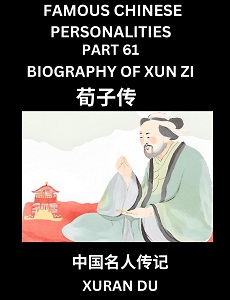
Title of Biography in English: The Biography of Xun Zi/Xun Tzu.
Check out books on my Amazon and Barnes & Noble homepages as well as the following pages to learn Biographies of famous Chinese personalities-
- Part 1 – Chinese Biography Book Series for Beginners
- Part 2 – Chinese Biography Book Series for Beginners
- Part 3 – Chinese Biography Book Series for Beginners
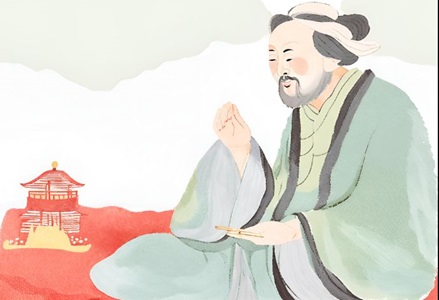
The Biography of Xun Zi in English (英文传记)
Xunzi: The Synthesizer of Confucian Thought

Xunzi, whose given name was Kuang and styled Qing, was a prominent figure in the late Warring States period, born in the State of Zhao around 313 BCE and passed away around 238 BCE. He is highly regarded as one of the key representatives of the Confucian school, revered as “Master Xun” or “Sun Qingzi” by later generations. Throughout his life, Xunzi dedicated himself to academic research and education, profoundly reflecting and expanding upon Confucianism, offering numerous insightful perspectives that profoundly influenced posterity.
Xunzi advocated the “Theory of Original Evil Nature,” contending that human nature is inherently evil and requires external constraints and guidance through education and ritual law to steer towards goodness. This view stands in stark contrast to Mencius’ “Theory of Original Good Nature” yet serves the same Confucian ideal of cultivating inner virtue and becoming an exemplary ruler. He emphasized “emphasizing rites and respecting laws,” recognizing the importance of both ritual norms and legal systems in maintaining social order, a forward-thinking and practical approach in his time.

A man of erudition, Xunzi was proficient in various schools of thought and excelled in logical reasoning and linguistic expression. His masterpiece, The Book of Xunzi, which includes essays such as “Encouraging Learning,” “On Heaven,” and “The Theory of Original Evil Nature,” profoundly expounds his ideas on education, the relationship between humanity and nature, and human nature, exerting a lasting influence on subsequent Confucianism and Chinese culture as a whole.
Learn Biography Of Xun Zi in Chinese (中文传记)
荀子,名况,字卿,战国末期赵国人,生于约公元前313年,逝于约公元前238年,是儒家学派的重要代表人物之一,被后世尊称为“荀卿”或“孙卿子”。他的一生致力于学术研究与教育,对儒家思想进行了深刻的反思与发展,提出了许多独到的见解,对后世产生了深远的影响。

荀子强调“性恶论”,认为人的本性是恶的,需要通过后天的教育与礼法来约束与引导,使之向善。这一观点与孟子的“性善论”形成鲜明对比,却同样服务于儒家“内圣外王”的理想。他主张“隆礼重法”,即在维护礼制的同时,也不忽视法律的作用,这一思想在当时的社会背景下具有前瞻性和实用性。
在学术上,荀子博学多才,精通诸子百家之学,尤其擅长于逻辑思辨和语言表达。他著有《荀子》一书,其中《劝学》、《天论》、《性恶》等篇章,深刻阐述了其教育、天人关系、人性论等思想,对后世儒学乃至整个中国文化产生了深远的影响。
Xun Tzu Biography Keywords- English, Chinese & Pinyin (关键词)

- 荀子(Xún Zǐ): Xunzi, the philosopher
- 儒家思想(Rú Jiā Sī Xiǎng): Confucianism, the philosophical system
- 性恶论(Xìng È Lùn): Theory of Original Evil Nature, the belief that human nature is inherently evil
- 隆礼重法(Lóng Lǐ Zhòng Fǎ): Emphasizing Rites and Respecting Laws, the principle of upholding ritual norms and legal systems
- 《荀子》(Xún Zǐ): The Book of Xunzi, a collection of essays by Xunzi
Pinyin of Xun Tzu Biography (荀子传记的拼音)

Xúnzi, míng kuàng, zì qīng, zhànguó mòqí zhào guórén, shēng yú yuē gōngyuán qián 313 nián, shì yú yuē gōngyuán qián 238 nián, shì rújiā xuépài de zhòngyào dàibiǎo rénwù zhī yī, bèi hòushì zūnchēng wèi “xún qīng” huò “sūn qīng zi”. Tā de yīshēng zhìlì yú xuéshù yánjiū yǔ jiàoyù, duì rújiā sīxiǎng jìnxíngle shēnkè de fǎnsī yǔ fāzhǎn, tíchūle xǔduō dúdào de jiànjiě, duì hòushì chǎnshēngle shēnyuǎn de yǐngxiǎng.
Xúnzi qiángdiào “xìng è lùn”, rènwéi rén de běnxìng shì è de, xūyào tōngguò hòutiān de jiàoyù yǔ lǐfǎ lái yuēshù yǔ yǐndǎo, shǐ zhī xiàng shàn. Zhè yī guāndiǎn yǔ mèngzǐ de “xìngshàn lùn” xíngchéng xiānmíng duìbǐ, què tóngyàng fúwù yú rújiā “nèi shèng wài wáng” de lǐxiǎng. Tā zhǔzhāng “lóng lǐ zhòng fǎ”, jí zài wéihù lǐ zhì de tóngshí, yě bù hūshì fǎlǜ de zuòyòng, zhè yī sīxiǎng zài dāngshí de shèhuì bèijǐng xià jùyǒu qiánzhān xìng hé shíyòng xìng.
Zài xuéshù shàng, xúnzi bóxué duōcái, jīngtōng zhū zǐ bǎi jiā zhī xué, yóuqí shàncháng yú luójí sībiàn hé yǔyán biǎodá. Tāzhe yǒu “xúnzi” yī shū, qízhōng “quàn xué”,“tiān lùn”,“xìng è” děng piānzhāng, shēnkè chǎnshùle qí jiàoyù, tiān rén guānxì, rénxìnglùn děng sīxiǎng, duì hòushì rúxué nǎizhì zhěnggè zhōngguó wénhuà chǎnshēngle shēnyuǎn de yǐngxiǎng.
